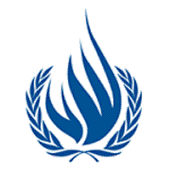Indispensable tool for realizing human rights
 Speciale VN Rapporteur Frank La Rue over toegang tot internet: 'an indispensable tool for realizing a range of human rights, combating inequality, and accelerating development and human progress, ensuring universal access to the Internet should be a priority for all States.'
Speciale VN Rapporteur Frank La Rue over toegang tot internet: 'an indispensable tool for realizing a range of human rights, combating inequality, and accelerating development and human progress, ensuring universal access to the Internet should be a priority for all States.'
Speciaal voor intermediairs als internet service providers wordt de Amerikaanse DMCA aangehaald als voorbeeld met haar zogenaamde safe harbor provisions en tegen censuur. Verder wordt het afsluiten van internetgebruikers op basis van auteursrechtschendingen (`Three Strikes Laws´) belicht vanuit een mensenrechtelijk perspectief.
43 (...) The Special Rapporteur welcomes initiatives taken in other countries to protect intermediaries, such as the bill adopted in Chile, which provides that intermediaries are not required to prevent or remove access to user-generated content that infringes copyright laws until they are notified by a court order28. A similar regime has also been proposed in Brazil29.
D. Disconnecting users from Internet access, including on the basis of violations of intellectual property rights law
49. While blocking and filtering measures deny access to certain content on the Internet, States have also taken measures to cut off access to the Internet entirely. The Special Rapporteur is deeply concerned by discussions regarding a centralized “on/off” control over Internet traffic33. In addition, he is alarmed by proposals to disconnect users from Internet access if they violate intellectual property rights. This also includes legislation based on the concept of “graduated response”, which imposes a series of penalties on copyright infringers that could lead to suspension of Internet service, such as the so-called “threestrikes-law” in France34 and the Digital Economy Act 2010 of the United Kingdom35.
50. Beyond the national level, the Anti-Counterfeiting Trade Agreement (ACTA) has been proposed as a multilateral agreement to establish international standards on intellectual property rights enforcement. While the provisions to disconnect individuals from Internet access for violating the treaty have been removed from the final text of December 2010, the Special Rapporteur remains watchful about the treaty’s eventual implications for intermediary liability and the right to freedom of expression.
Conclusion and recommendations Disconnecting users from Internet access, including on the basis of intellectual property rights law.
78. (...) The Special Rapporteur considers cutting off users from Internet access, regardless of the justification provided, including on the grounds of violating intellectual property rights law, to be disproportionate and thus a violation of article 19, paragraph 3, of the International Covenant on Civil and Political Rights.
79. The Special Rapporteur calls upon all States to ensure that Internet access is maintained at all times, including during times of political unrest. In particular, the Special Rapporteur urges States to repeal or amend existing intellectual copyright laws which permit users to be disconnected from Internet access, and to refrain from adopting such laws.
Lees het gehele rapport hier (link)
Voetnoten:
28 Ley No. 20435, Modifica La Ley No.17.336 Sobre Propiedad Intelectual, chap. III, art. 85-L – art. 85-U, adopted on 4 May 201
29 “New Draft Bill Proposition: Available for Download”, Marco Civil da Internet, 21 May 2010.
33 “Reaching for the kill switch”, The Economist, 10 February 2011.
34Decision 2009-580, Act furthering the diffusion and protection of creation on the Internet, (original: Loi favorisant la diffusion et la protection de la création sur internet), Conseil Constitutionnel, 10 June 2010. Available from: https://www.conseil-constitutionnel.fr/conseilconstitutionnel/root/bank_mm/anglais/2009_580dc.pdf.
35 Digital Economy Act 2010, sections 3-16





















































































